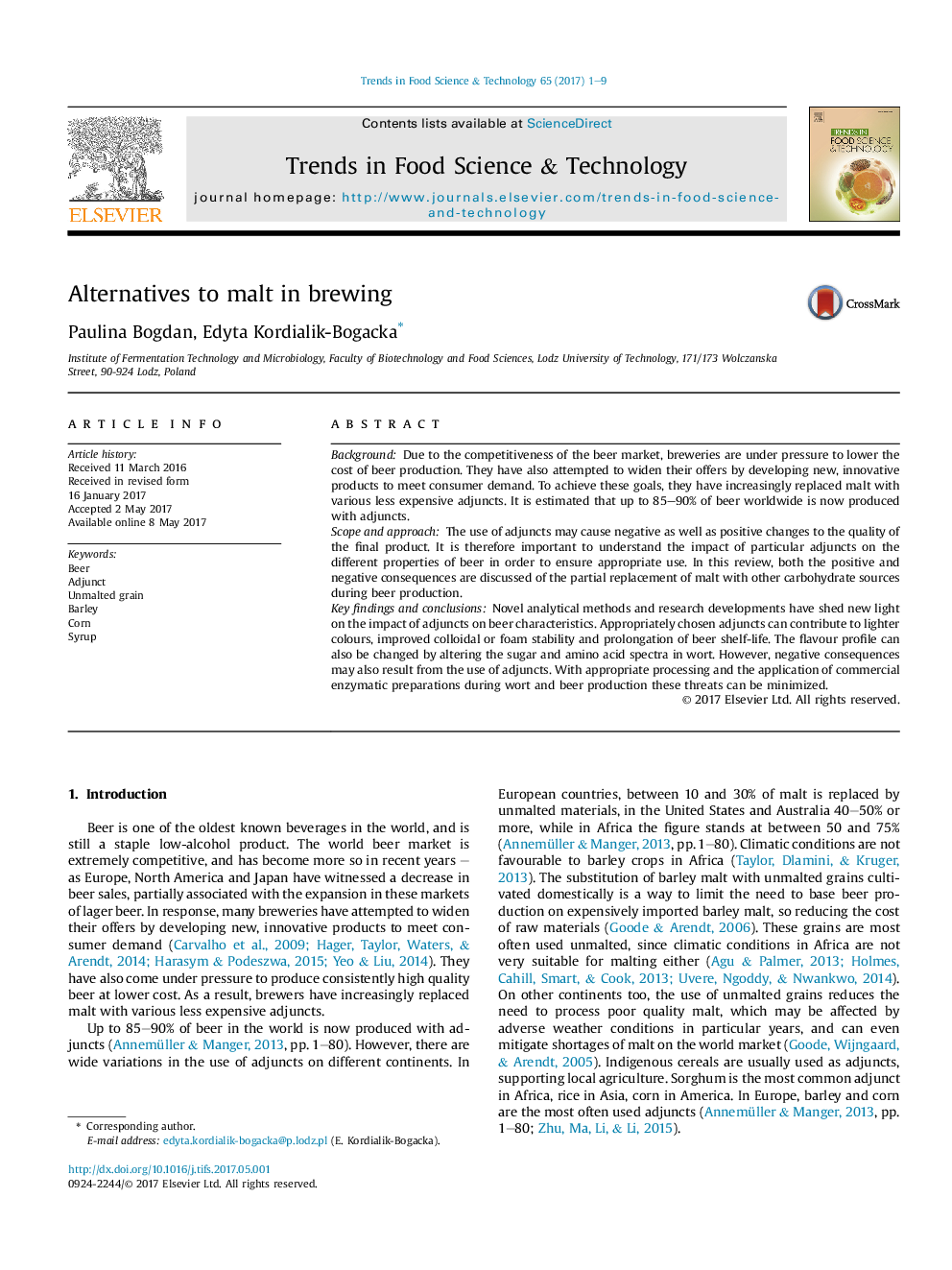| Article ID | Journal | Published Year | Pages | File Type |
|---|---|---|---|---|
| 5523740 | Trends in Food Science & Technology | 2017 | 9 Pages |
â¢Brewers have increasingly replaced malt with less expensive sources of extract.â¢Adjuncts allow to develop new, innovative products to meet consumer demand.â¢Adjuncts are commonly used to produce high-gravity worts.â¢The use of adjuncts may cause both negative and positive changes to beer quality.
BackgroundDue to the competitiveness of the beer market, breweries are under pressure to lower the cost of beer production. They have also attempted to widen their offers by developing new, innovative products to meet consumer demand. To achieve these goals, they have increasingly replaced malt with various less expensive adjuncts. It is estimated that up to 85-90% of beer worldwide is now produced with adjuncts.Scope and approachThe use of adjuncts may cause negative as well as positive changes to the quality of the final product. It is therefore important to understand the impact of particular adjuncts on the different properties of beer in order to ensure appropriate use. In this review, both the positive and negative consequences are discussed of the partial replacement of malt with other carbohydrate sources during beer production.Key findings and conclusionsNovel analytical methods and research developments have shed new light on the impact of adjuncts on beer characteristics. Appropriately chosen adjuncts can contribute to lighter colours, improved colloidal or foam stability and prolongation of beer shelf-life. The flavour profile can also be changed by altering the sugar and amino acid spectra in wort. However, negative consequences may also result from the use of adjuncts. With appropriate processing and the application of commercial enzymatic preparations during wort and beer production these threats can be minimized.
